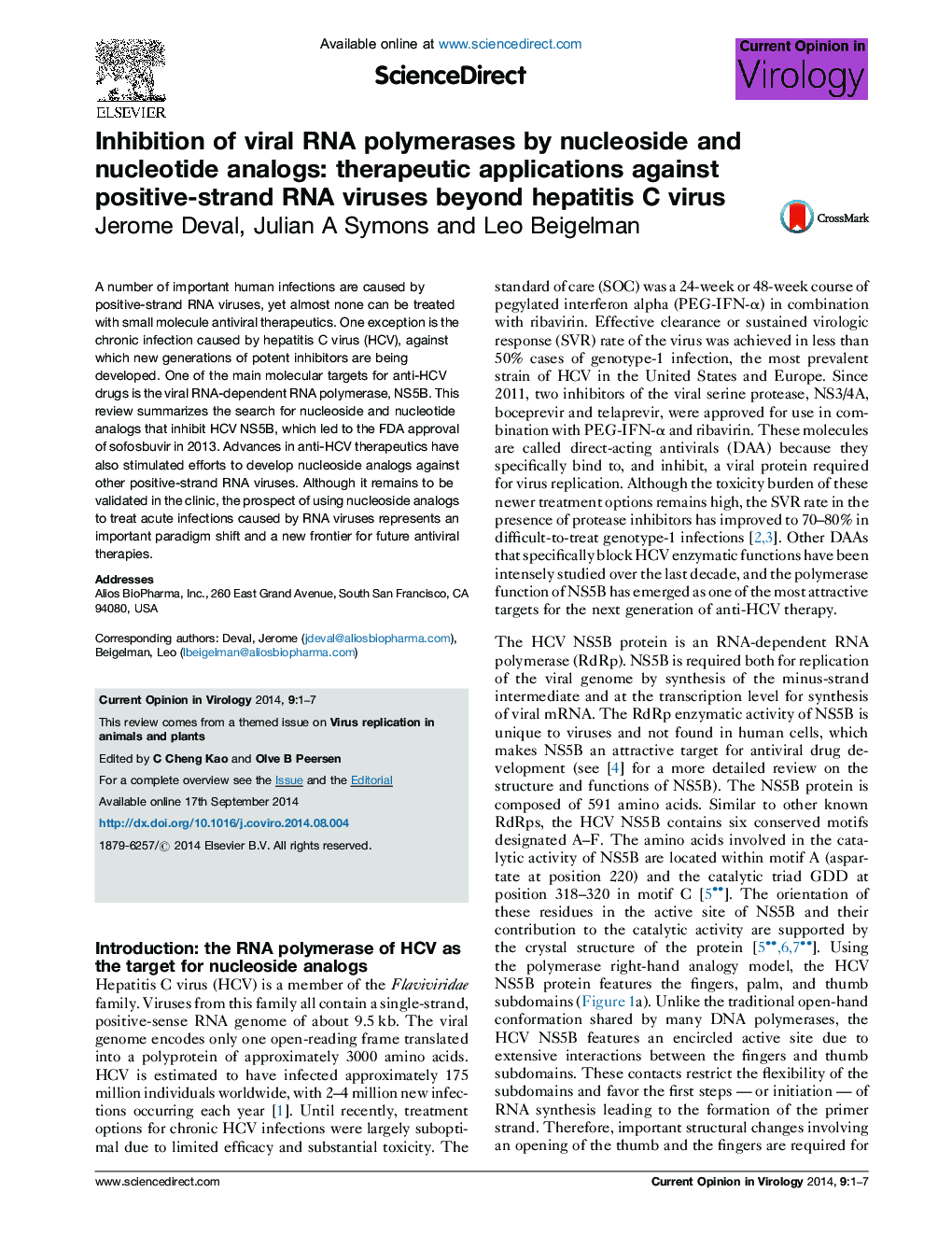| Article ID | Journal | Published Year | Pages | File Type |
|---|---|---|---|---|
| 2473318 | Current Opinion in Virology | 2014 | 7 Pages |
•New therapies for infections caused by positive-strand RNA viruses are needed.•Novel nucleoside and nucleotide analogs that inhibit HCV have been developed.•Some of these molecules also inhibit other positive-strand RNA viruses.•Optimization of antiviral potency and/or target delivery is necessary.
A number of important human infections are caused by positive-strand RNA viruses, yet almost none can be treated with small molecule antiviral therapeutics. One exception is the chronic infection caused by hepatitis C virus (HCV), against which new generations of potent inhibitors are being developed. One of the main molecular targets for anti-HCV drugs is the viral RNA-dependent RNA polymerase, NS5B. This review summarizes the search for nucleoside and nucleotide analogs that inhibit HCV NS5B, which led to the FDA approval of sofosbuvir in 2013. Advances in anti-HCV therapeutics have also stimulated efforts to develop nucleoside analogs against other positive-strand RNA viruses. Although it remains to be validated in the clinic, the prospect of using nucleoside analogs to treat acute infections caused by RNA viruses represents an important paradigm shift and a new frontier for future antiviral therapies.
Graphical abstractFigure optionsDownload full-size imageDownload as PowerPoint slide
